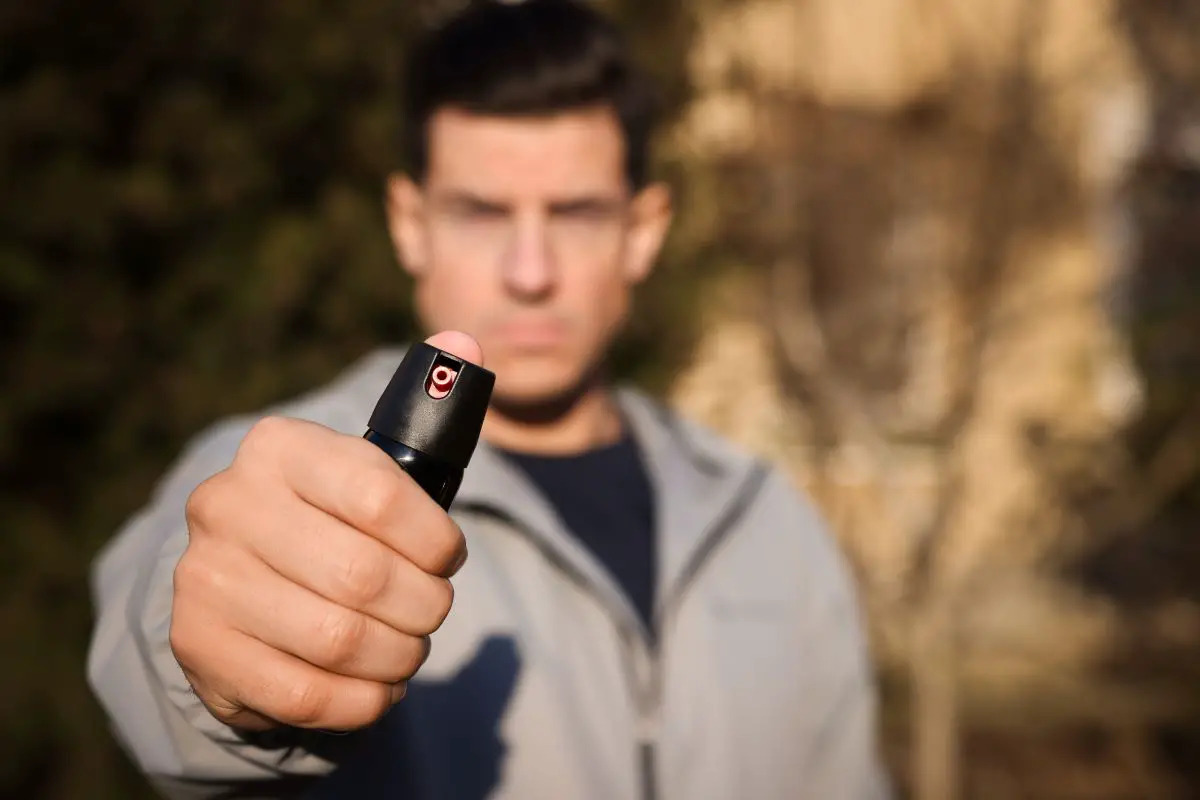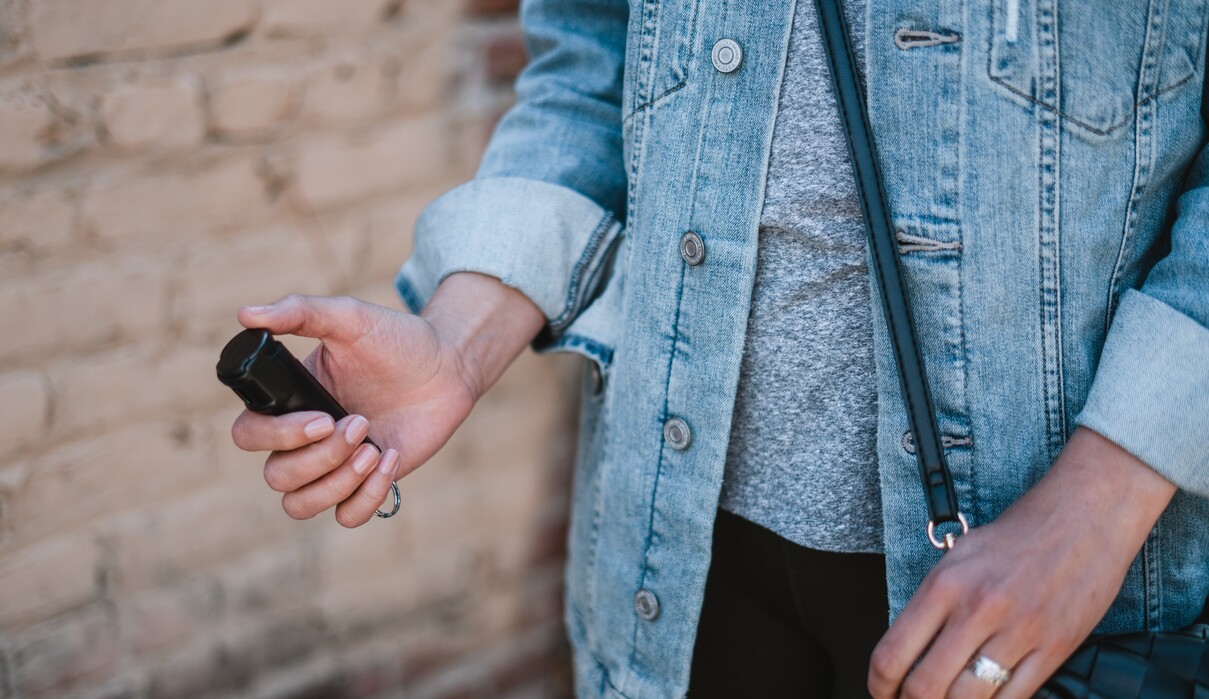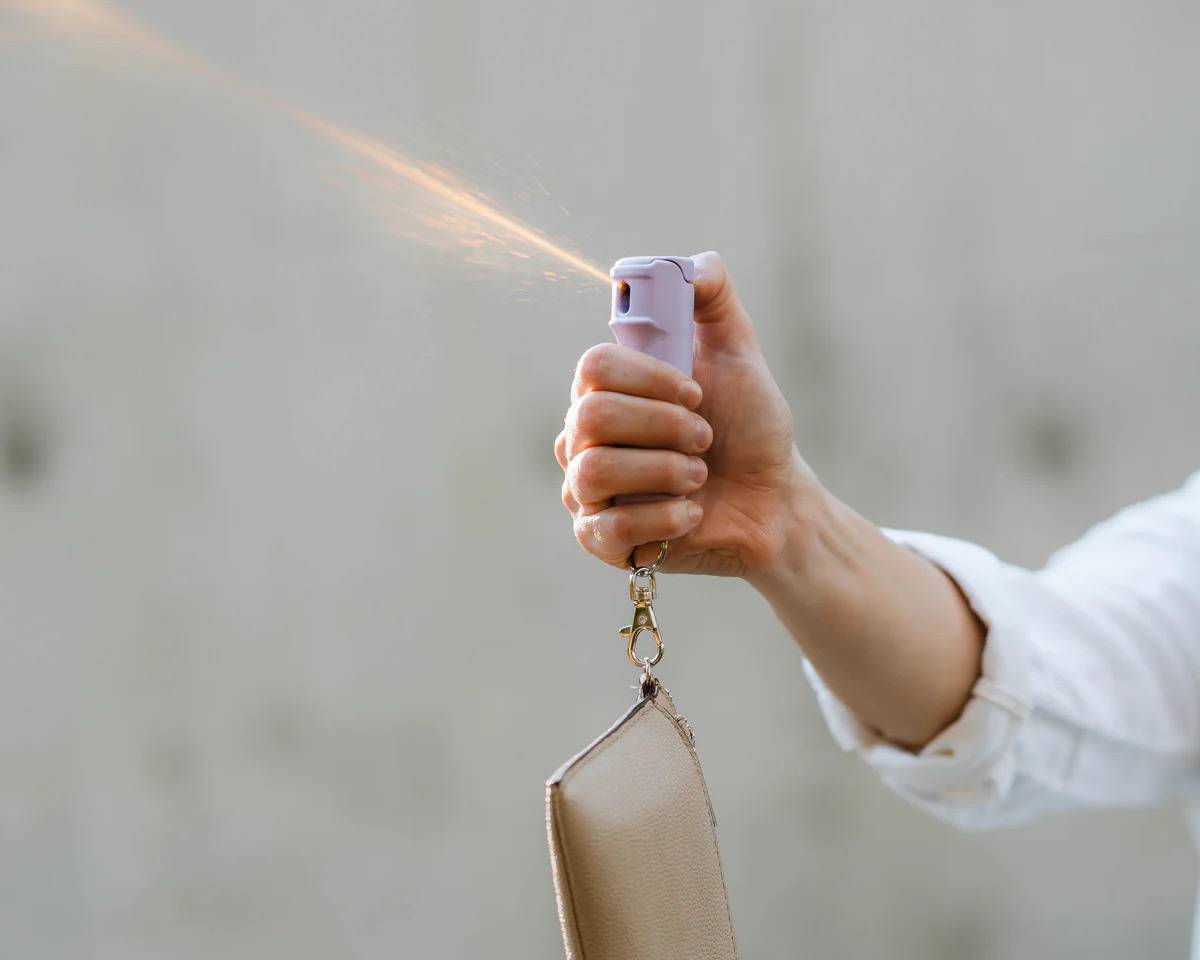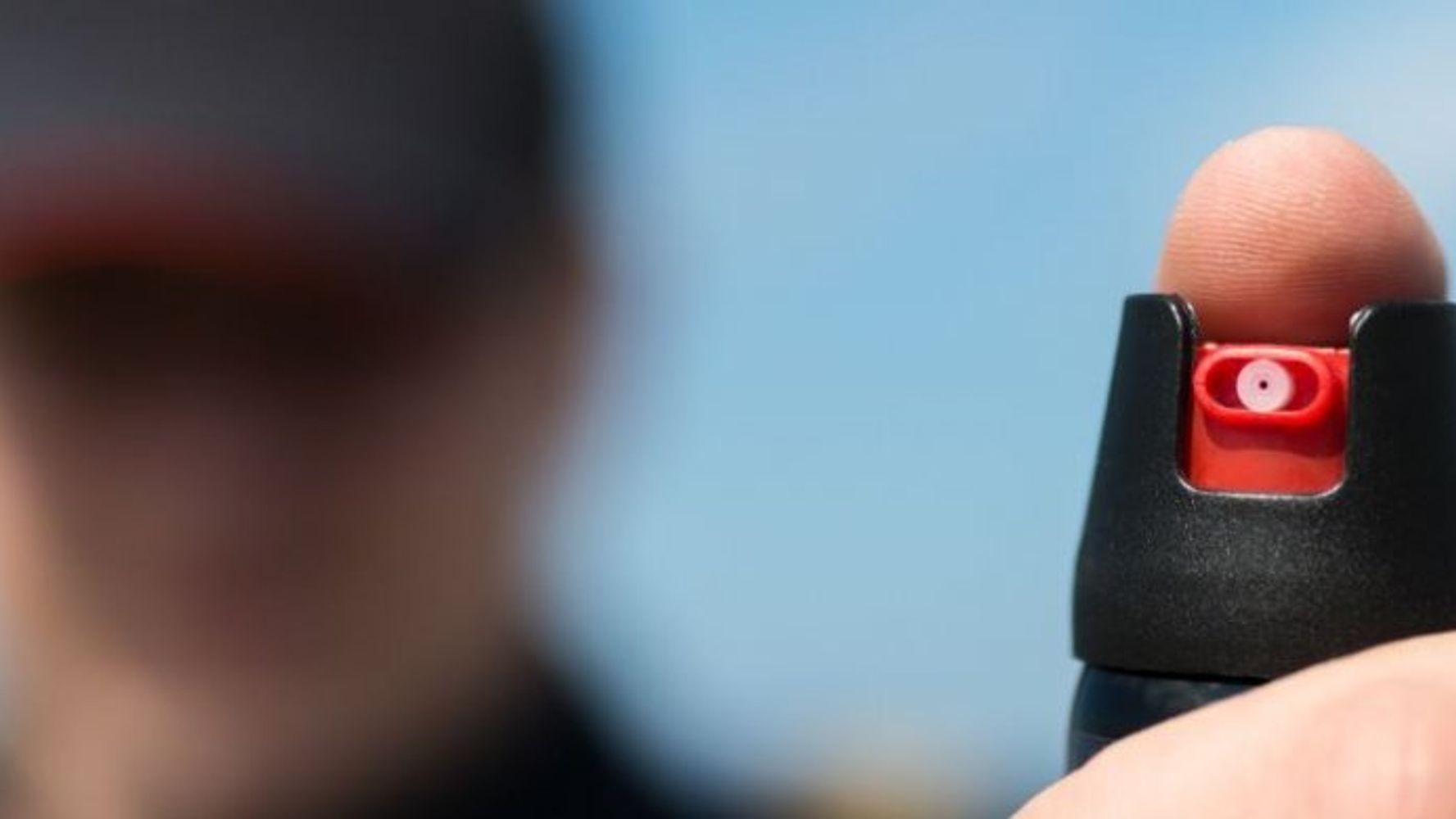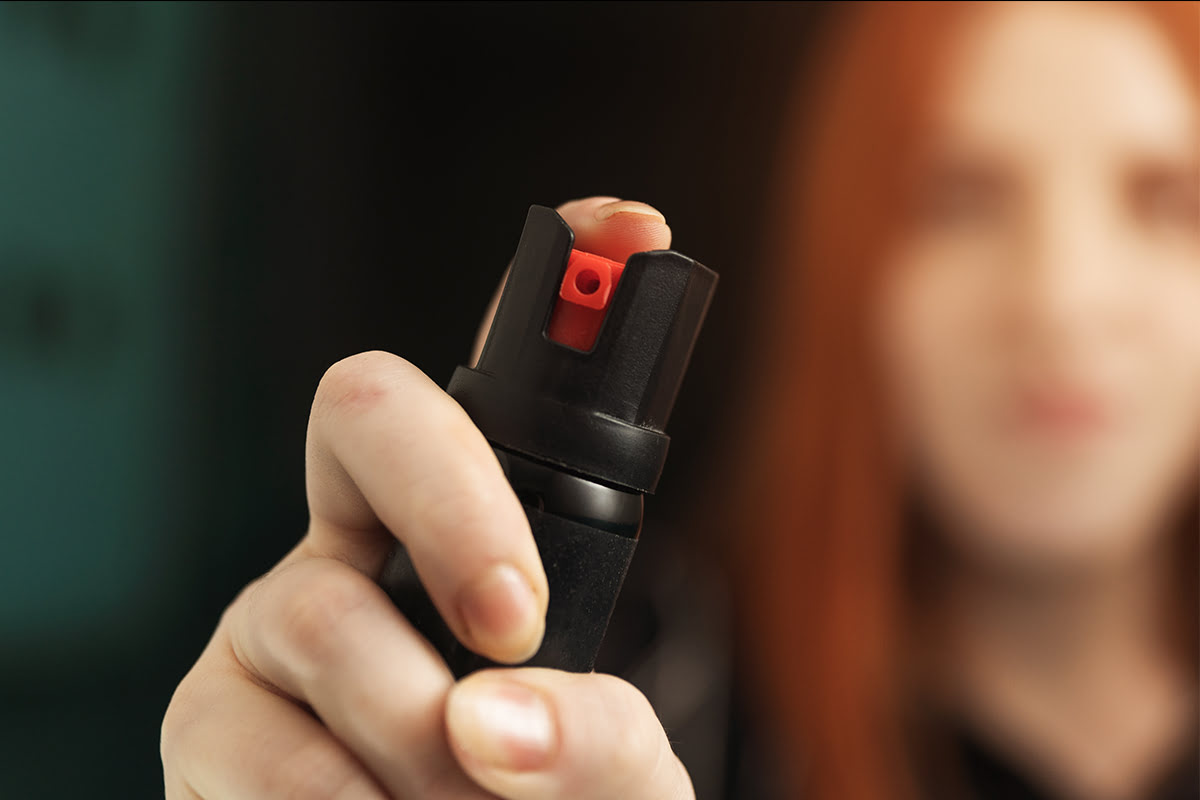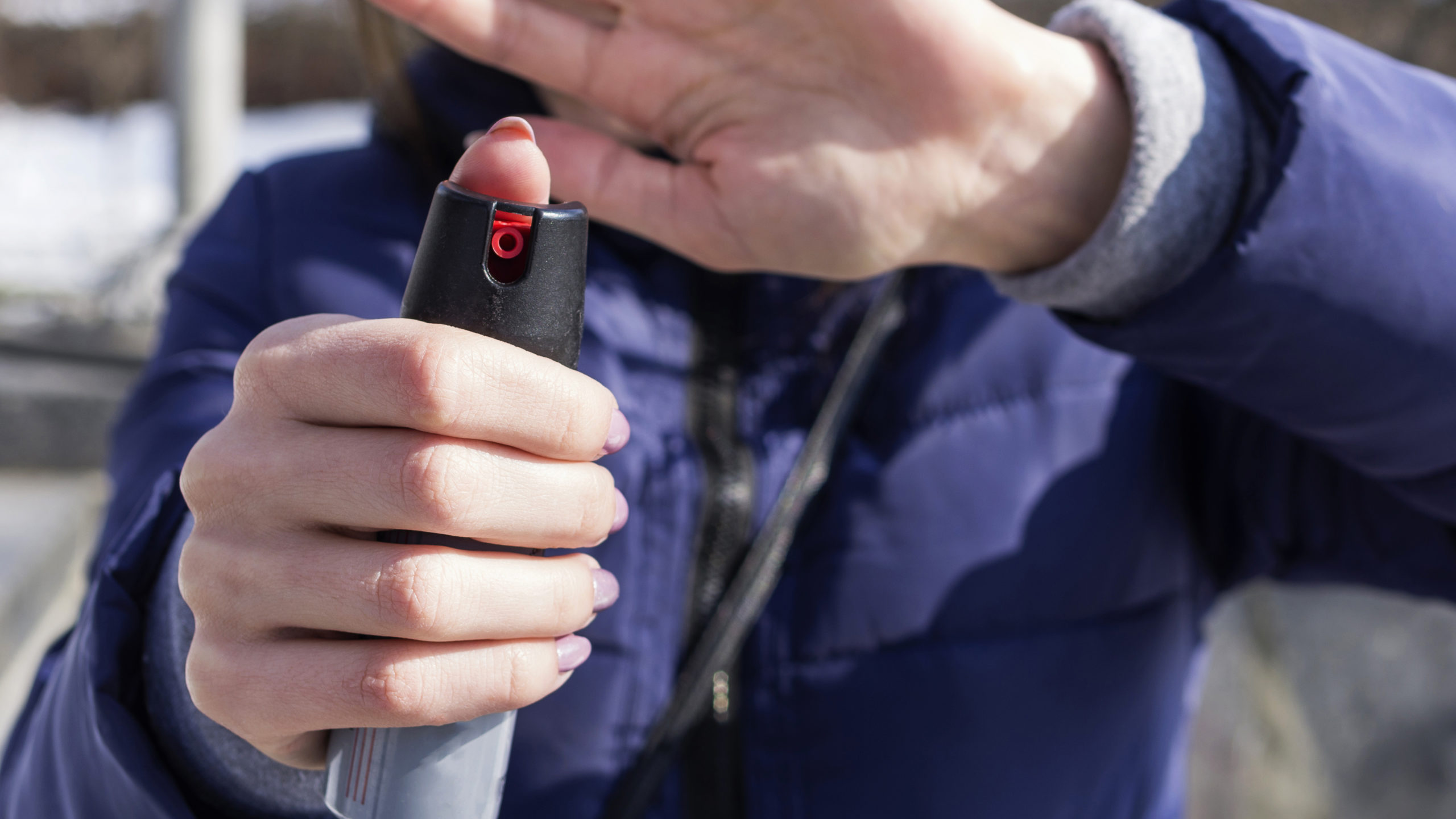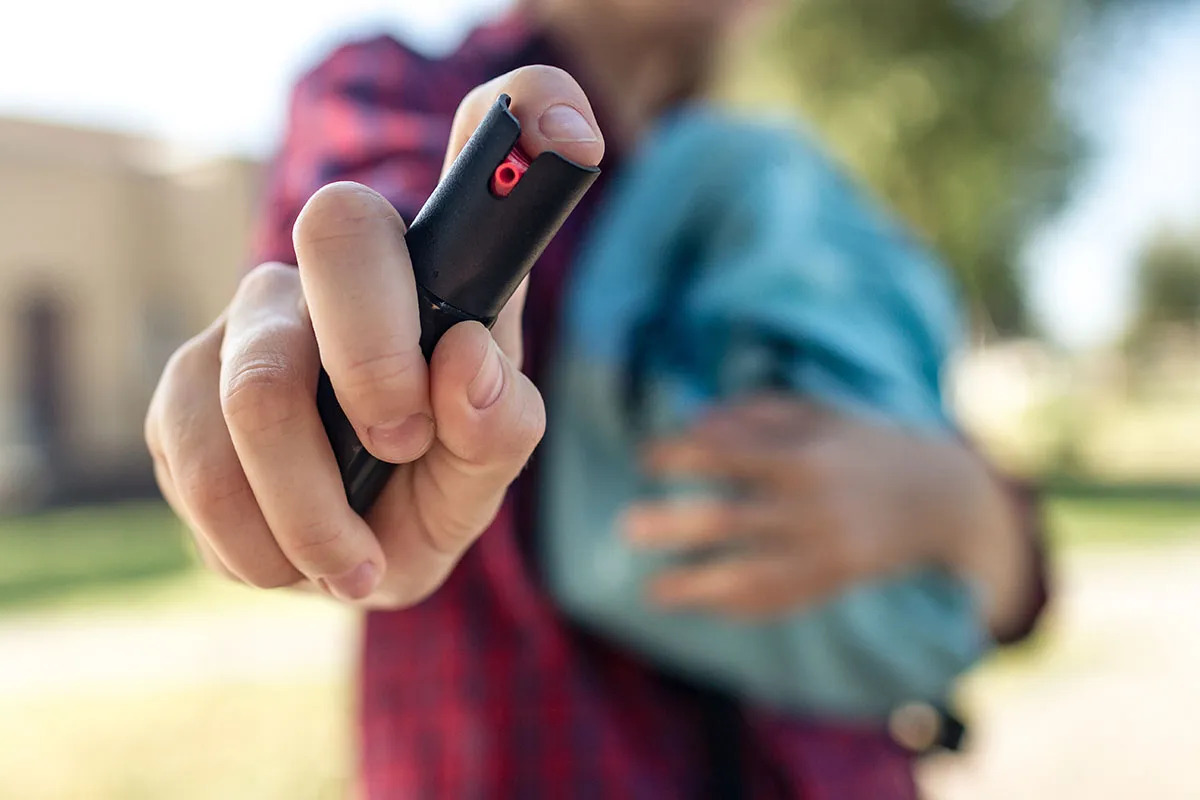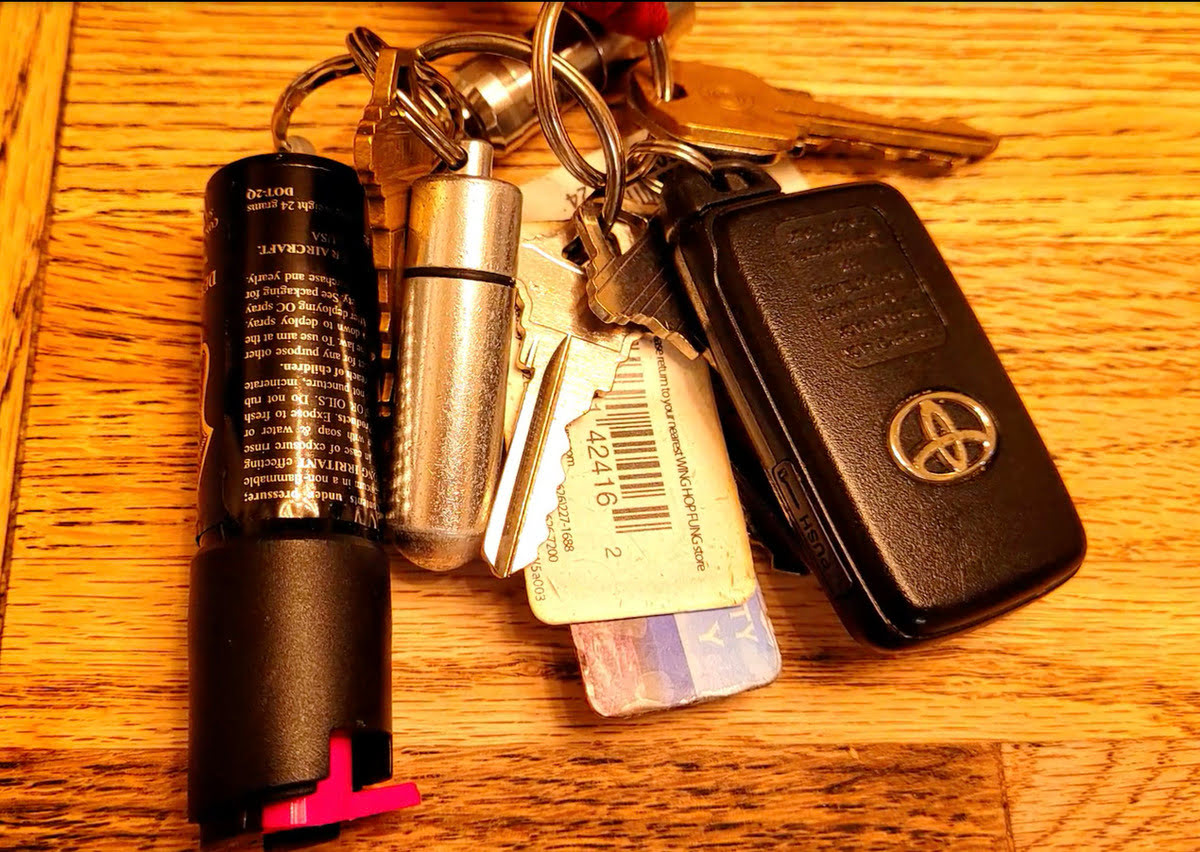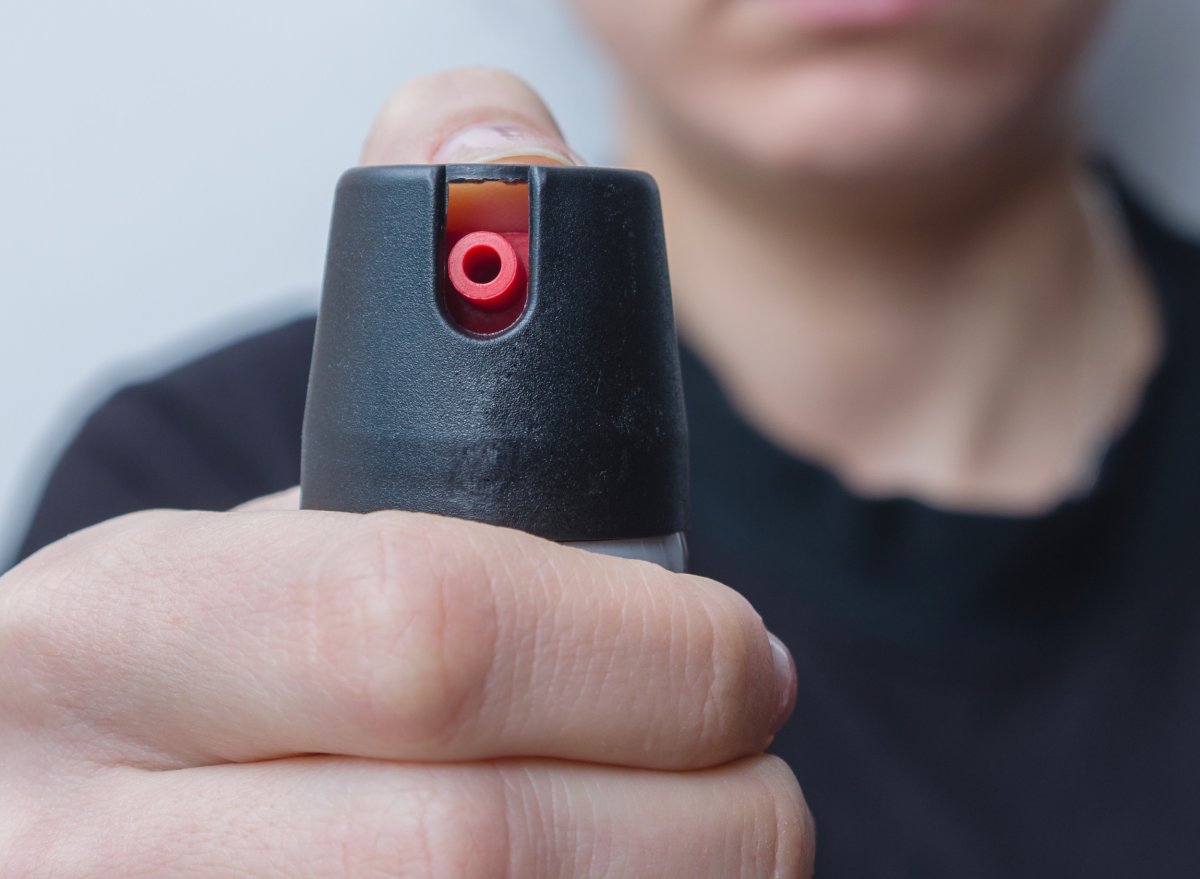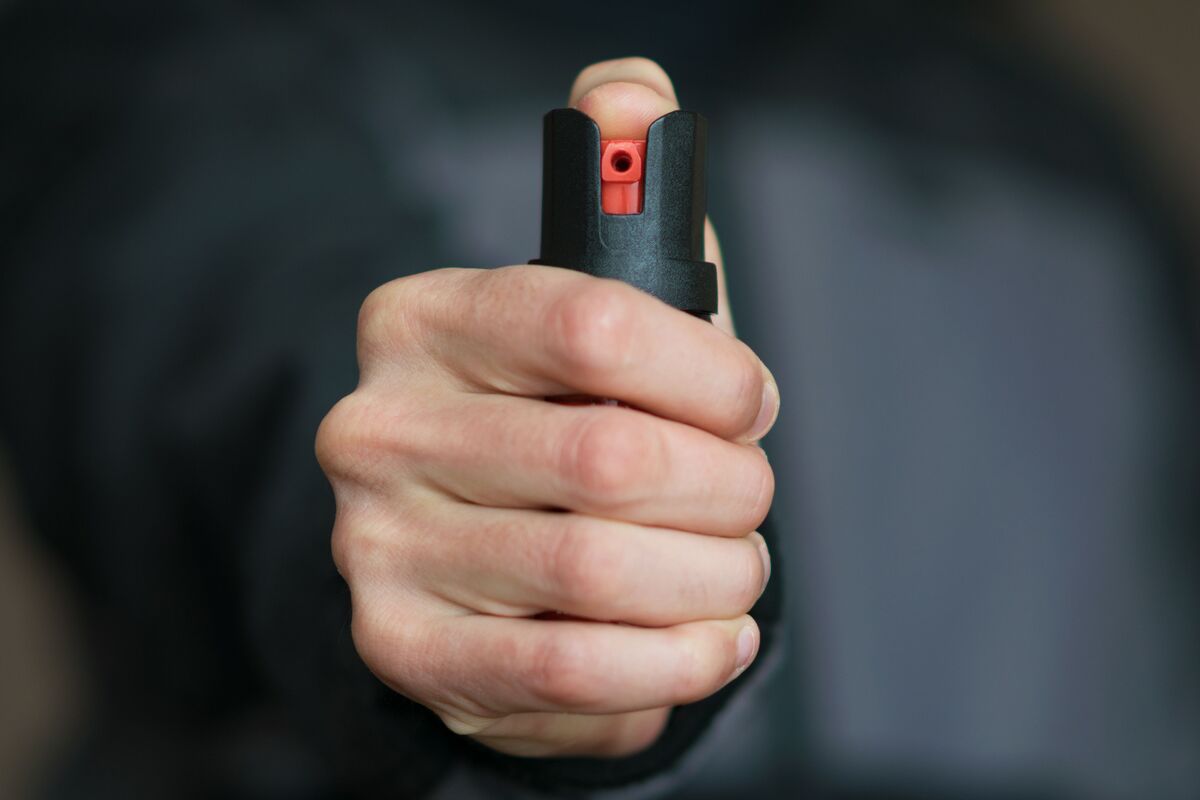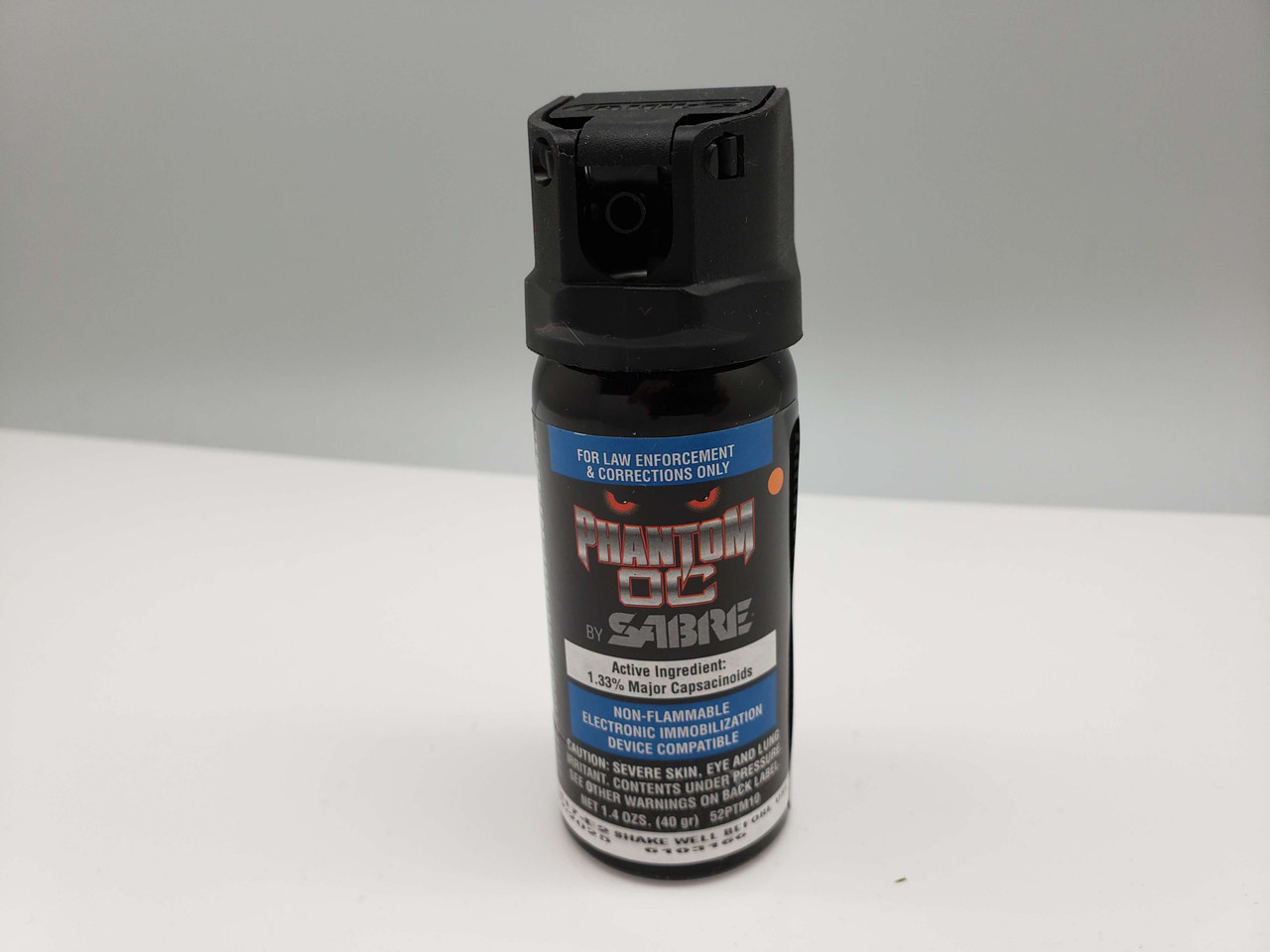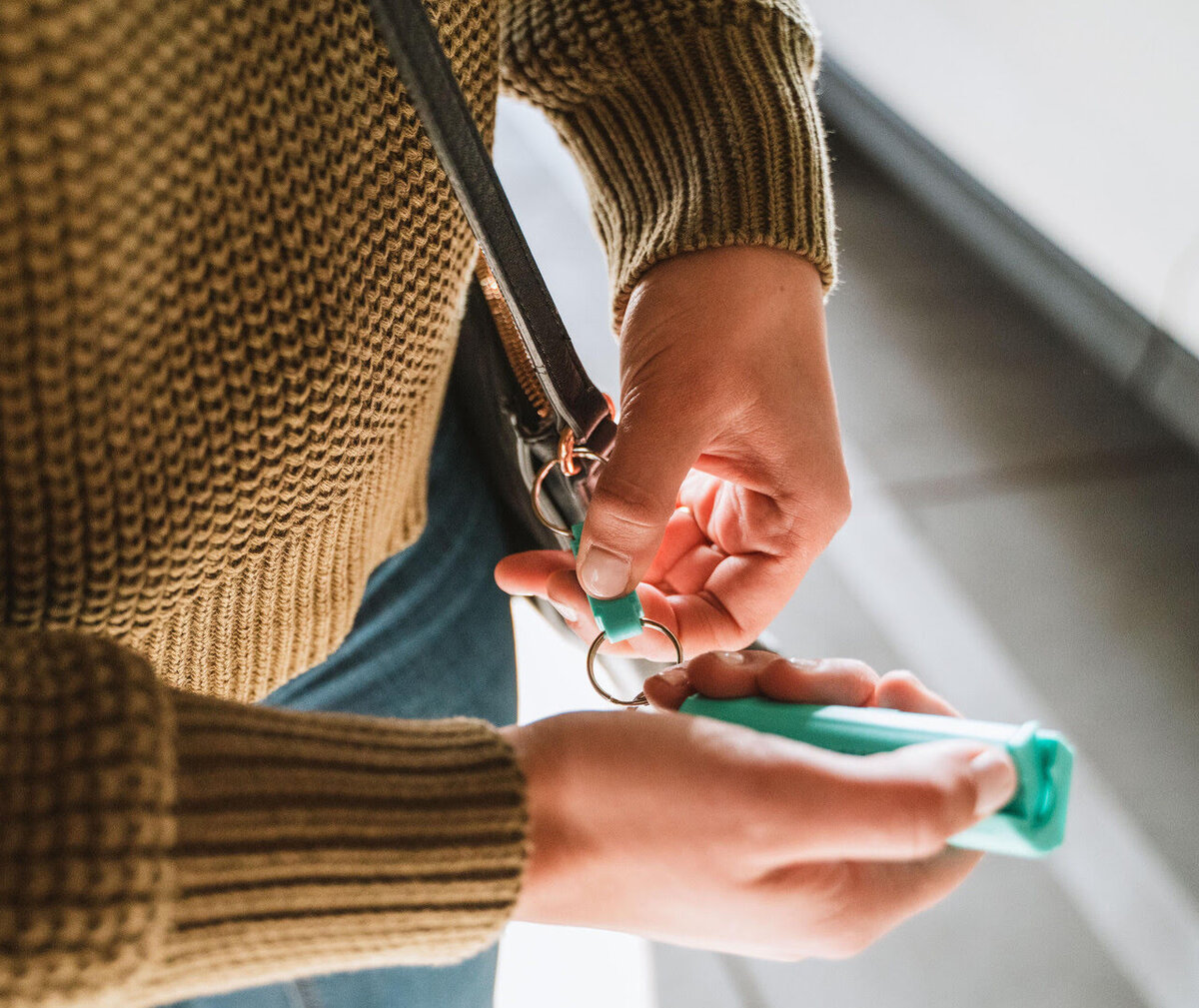Home>Home Security and Surveillance>How Long Does Pepper Spray Burn
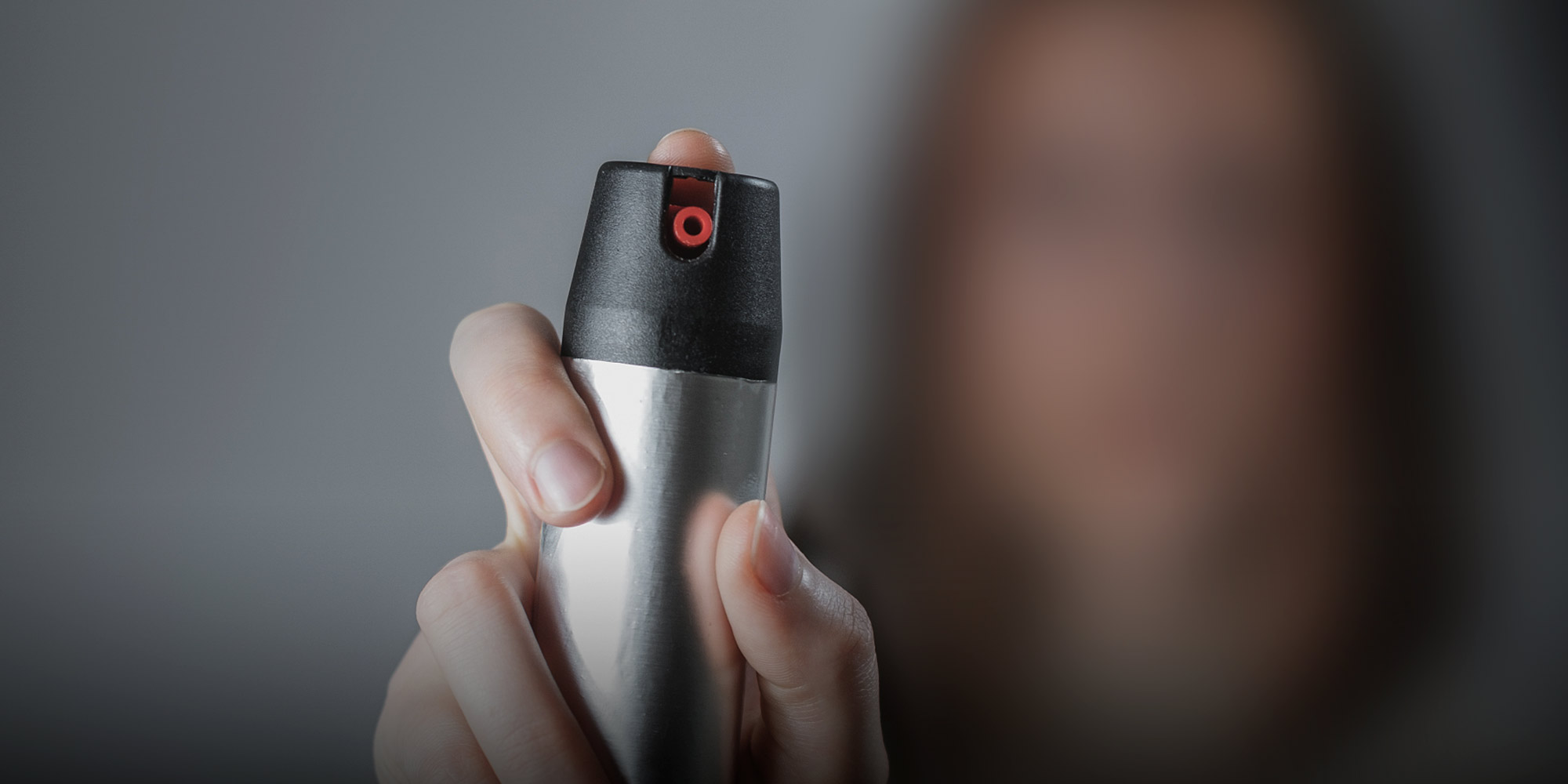

Home Security and Surveillance
How Long Does Pepper Spray Burn
Modified: March 6, 2024
Learn how long pepper spray burns and the effects it has on individuals. Increase your home security and surveillance with this valuable information.
(Many of the links in this article redirect to a specific reviewed product. Your purchase of these products through affiliate links helps to generate commission for Storables.com, at no extra cost. Learn more)
Introduction
Welcome to our comprehensive guide on pepper spray burns! If you’ve ever wondered how long the burning sensation lasts after being exposed to pepper spray, you’ve come to the right place. In this article, we will explore everything you need to know about pepper spray, its effects, and what you can do to mitigate the discomfort.
Pepper spray is a commonly used self-defense tool that contains oleoresin capsicum (OC), a derivative of hot peppers. When sprayed on an assailant, pepper spray causes pain, inflammation, and temporary incapacitation, allowing the victim to escape a dangerous situation.
Knowing how long the burning sensation lasts after being exposed to pepper spray is crucial for both personal safety and understanding the overall impact it may have on you or others. While the duration can vary depending on various factors, such as the concentration of the spray and individual tolerance, we will provide you with a general overview to help you better understand what to expect.
Note: This article focuses on the duration of the burning sensation caused by pepper spray. If you are looking for information about the overall effects of pepper spray, such as respiratory distress or eye irritation, please consult relevant resources.
Key Takeaways:
- Pepper spray burns can last from 30 minutes to 2 hours, but can vary based on factors like concentration, exposure amount, and individual tolerance. It’s crucial to seek medical help if the burning sensation persists or worsens.
- To manage pepper spray burns, move to fresh air, rinse with cool water, and avoid rubbing the affected area. Seek medical attention if you experience severe symptoms, prolonged burning, eye irritation, or signs of infection.
Read more: How To Stop Pepper Spray Burn On Skin
What is Pepper Spray?
Pepper spray, also known as OC spray, is a non-lethal self-defense tool that has gained popularity for its effectiveness in disabling attackers. It is commonly used by law enforcement personnel, security guards, and individuals seeking personal protection.
The active ingredient in pepper spray is oleoresin capsicum (OC), a natural oil derived from chili peppers. OC is responsible for the pungency and heat of the spray. When sprayed on an attacker, it causes an intense burning sensation on the skin, eyes, and mucous membranes, leading to temporary incapacitation.
Pepper spray comes in various forms, including aerosol cans, keychain units, and gel dispensers. The concentration of OC in the spray can vary, ranging from 0.18% to 1.33%. Higher concentrations generally result in more potent effects. It is important to note that the use of pepper spray should only be employed in self-defense situations and within the legal boundaries of your jurisdiction.
Pepper spray works by causing irritation and inflammation in the eyes, nose, throat, and skin. When it comes into contact with the eyes, it immediately triggers a burning sensation, excessive tearing, and intense pain. The respiratory system is also affected, leading to coughing, difficulty breathing, and a sense of choking.
It is important to follow proper usage guidelines and exercise caution when handling pepper spray. Always aim for the attacker’s face, specifically targeting the eyes and nose. Additionally, remember to keep a safe distance to avoid potential blowback.
While pepper spray is an effective self-defense tool, it is vital to remember that it may not incapacitate an assailant instantly. The purpose of pepper spray is to create an opportunity for the victim to escape. It is crucial to always prioritize personal safety and contact law enforcement authorities after using pepper spray in self-defense situations.
How does Pepper Spray work?
Pepper spray is designed to temporarily incapacitate an attacker by causing severe irritation and pain. Understanding how it works can help you comprehend the effects it has on the body and why it is such an effective self-defense tool.
When pepper spray is sprayed onto an individual, it primarily affects the eyes, nose, throat, and skin. The active ingredient in pepper spray, oleoresin capsicum (OC), interacts with the nerve endings and sensory receptors in these areas, triggering a range of physiological responses.
Upon contact with the eyes, OC causes immediate dilation of the capillaries and blood vessels, leading to intense redness and swelling. The eyes respond by producing a large amount of tears, which can be overwhelming and impair vision. The intense burning sensation experienced is due to the interaction between the OC and the nerve endings around the eyes.
When inhaled or exposed to the nose and throat, pepper spray can cause respiratory distress. It irritates the mucous membranes, leading to excessive coughing, difficulty breathing, and a sensation of choking. This response is the body’s way of protecting the airway and expelling the irritants.
Pepper spray also affects the skin, leading to burning, pain, and inflammation. It can cause severe discomfort and a sensation of heat, which can last for varying durations depending on the individual’s sensitivity and the concentration of the spray.
The effects of pepper spray are temporary, typically lasting anywhere from 30 minutes to an hour, depending on the individual and environmental factors. It is important to note that some individuals may experience residual effects, such as redness, swelling, and irritation, which can persist for several hours after exposure.
It is crucial to remember that pepper spray should only be used in self-defense situations and within the legal boundaries of your jurisdiction. Improper usage or use without just cause can have serious consequences.
If you have been exposed to pepper spray, it is essential to seek fresh air and immediately flush the affected areas with cool water. Avoid touching or rubbing the affected areas as this can worsen the irritation. It is recommended to remove contaminated clothing and wash it thoroughly.
Pepper spray can be an effective tool in deterring and incapacitating attackers, but it is always best to prioritize personal safety and contact the appropriate authorities after using it in self-defense situations.
Duration of Burning Sensation
The burning sensation caused by pepper spray can be incredibly intense and distressing. It is important to understand how long this uncomfortable sensation may last to better prepare yourself for the aftermath of exposure.
The duration of the burning sensation can vary depending on several factors. These factors include the concentration of the pepper spray, the amount applied, the individual’s tolerance level, and the area of the body that was exposed. Generally, the burning sensation can last anywhere from 30 minutes to 2 hours, but it can sometimes persist for even longer periods.
It is crucial to note that the effects of pepper spray are temporary. While the burning sensation may be severe initially, it will gradually subside over time. Rinsing the affected area with cool water can offer some relief and help alleviate the discomfort.
However, it is important to remember that everyone’s reaction to pepper spray is different, and some individuals may experience more prolonged and severe burning sensations. Factors such as skin sensitivity, pre-existing medical conditions, and allergies can influence how the body responds to the exposure.
If you find yourself or someone you know experiencing an exceptionally prolonged or severe burning sensation after being exposed to pepper spray, it is crucial to seek medical attention. A healthcare professional can assess the situation and provide appropriate treatment to alleviate the discomfort and ensure no further complications arise.
In addition to the immediate burning sensation, it is not uncommon for individuals to experience residual effects even after the intense burning has subsided. These effects may include redness, swelling, and skin irritation, which can last for several hours or even up to a day after exposure.
It is crucial to exercise caution and avoid touching or rubbing the affected areas, as this can further aggravate the skin and prolong the discomfort. Applying cool compresses and using soothing creams or ointments recommended by a healthcare professional can help alleviate these residual effects.
Remember, the duration of the burning sensation caused by pepper spray varies from person to person, and there is no set timeframe for how long it will last. By understanding the factors that influence the duration and taking appropriate measures for relief, you can better cope with the discomfort and allow your body to heal.
After being sprayed with pepper spray, the burning sensation can last anywhere from 20 minutes to an hour. To help alleviate the burning, rinse the affected area with cold water and use a mild soap to wash off the residue.
Factors Affecting Burning Duration
The duration of the burning sensation caused by pepper spray can vary from person to person. Several factors can influence how long the discomfort lasts after exposure to pepper spray. Understanding these factors can help paint a clearer picture of what to expect and how to manage the aftermath.
1. Concentration of the Pepper Spray: The concentration of oleoresin capsicum (OC) in the pepper spray plays a significant role in determining the intensity and duration of the burning sensation. Higher concentrations generally result in more potent effects, potentially prolonging the discomfort.
2. Amount of Exposure: The more pepper spray that comes into contact with the skin or eyes, the longer the burning sensation may last. If a larger amount is applied or sprayed directly into the eyes, it can intensify the effects and prolong the discomfort.
3. Individual Tolerance: Each individual reacts differently to pepper spray. Factors such as skin sensitivity, overall health, and previous exposure to irritants can influence how the body responds. Some individuals may have a higher tolerance, which may result in a shorter duration of the burning sensation.
4. Location of Exposure: The area of the body that is exposed to pepper spray can impact the duration of the burning sensation. Areas with more sensitive skin, such as the face or neck, may experience a more prolonged discomfort compared to less sensitive areas.
5. Environmental Factors: Environmental conditions, such as temperature and humidity, can affect how the body reacts to pepper spray. Higher temperatures or humid environments may exacerbate the burning sensation and prolong its duration.
It is important to note that while these factors can influence the duration of the burning sensation, they are not absolute determinants. Each person’s response to pepper spray can vary, and there is no precise formula for predicting the exact length of the discomfort.
If you have been exposed to pepper spray and are experiencing a prolonged and severe burning sensation or any other concerning symptoms, it is crucial to seek medical attention. A healthcare professional can evaluate your situation and provide appropriate treatment to alleviate the discomfort.
Remember, the key is to prioritize personal safety and take steps to mitigate the effects of pepper spray exposure. Rinse the affected area with cool water, avoid rubbing or touching the skin, and seek medical assistance if needed. With proper care, the burning sensation will gradually subside, allowing you to recover fully.
Read more: How Long Does Pepper Spray Stay On Surfaces
Tips for Dealing with Pepper Spray Burns
Experiencing the burning sensation caused by pepper spray can be incredibly uncomfortable. Here are some tips to help you effectively deal with pepper spray burns and alleviate the discomfort:
- Move to Fresh Air: If you have been exposed to pepper spray, move away from the area where it was sprayed to get fresh air. This can help minimize further exposure to the irritants.
- Rinse with Cool Water: Immediately rinse the affected area with cool water. Avoid hot water as it can intensify the burning sensation. Allow the water to flow gently over the affected skin or flush out the eyes if necessary.
- Keep Your Eyes Open: While rinsing your eyes, try to keep them open as much as possible to flush out the pepper spray. Blinking and moving your eyes in all directions can help remove any residue that may be trapped.
- Avoid Touching or Rubbing: Refrain from touching or rubbing the affected area, as this can further spread the irritants and exacerbate the burning sensation. Instead, let the cool water run over the skin or use a clean cloth to gently pat the area dry.
- Use Mild Soap and Water: After rinsing with water, you can gently wash the affected area with mild soap and water to remove any remaining residue. Be cautious not to scrub vigorously, as it may aggravate the skin further.
- Apply a Cool Compress: To help soothe the burning sensation, you can apply a cool compress to the affected area. Wrap a clean cloth or towel around an ice pack or soak a cloth in cool water and apply it gently to the skin for short intervals.
- Avoid Oil-Based Remedies: While it may be tempting to use oil or petroleum-based substances to alleviate the burning sensation, they can trap the irritants on the skin and delay the healing process. Stick to water-based remedies like cool water and aloe vera gel.
- Seek Medical Attention if Needed: If the burning sensation persists or if you experience severe symptoms such as difficulty breathing, extreme swelling, or prolonged eye irritation, it is essential to seek immediate medical attention. A healthcare professional can assess the situation and provide appropriate treatment.
- Be Patient: It may take some time for the burning sensation to fully subside. Remember to be patient and allow your body to heal. Avoid exposing the affected area to further irritants and take care to prevent infection by keeping the area clean.
Pepper spray burns can be incredibly uncomfortable, but with proper care and attention, you can alleviate the discomfort and allow your body to recover. Remember, everyone responds differently to pepper spray, so it’s important to listen to your body and seek medical attention if necessary.
Seeking Medical Attention
While most pepper spray burns can be managed at home with basic first aid measures, there are instances where it is necessary to seek medical attention. It is important to understand when to seek professional help to ensure proper care and treatment. Here are some situations where medical attention may be required:
- Severe Symptoms: If you experience severe symptoms such as difficulty breathing, persistent chest pain, extreme swelling, or any other concerning signs, do not hesitate to seek immediate medical attention. These symptoms may indicate an allergic reaction or a more serious underlying condition.
- Prolonged Burning Sensation: If the burning sensation persists for an extended period beyond what is considered normal or becomes increasingly severe, it is advisable to consult a healthcare professional. They can assess the situation, determine the severity of the burn, and provide appropriate treatment.
- Eye Irritation: If you have been exposed to pepper spray and experience persistent eye irritation, excessive tearing, blurry vision, or any other abnormal eye symptoms, it is important to see an eye doctor or visit an emergency room. Prompt evaluation and treatment are crucial to prevent potential complications and ensure eye health.
- Asthma or Respiratory Conditions: If you have a pre-existing respiratory condition such as asthma or chronic obstructive pulmonary disease (COPD) and are exposed to pepper spray, it is essential to seek medical attention, even if you do not exhibit immediate symptoms. These conditions can be aggravated by exposure to irritants, and a healthcare professional can provide appropriate care and guidance.
- Allergic Reactions: If you have known allergies or have previously experienced an allergic reaction to pepper spray or other irritants, it is important to seek medical attention immediately. Allergic reactions can range from mild to severe and may require prompt treatment with antihistamines or other interventions.
- Secondary Infections: If you notice signs of infection such as increasing redness, swelling, warmth, or pus in the affected area, it is important to seek medical attention. Secondary infections can occur if the burn is not properly cleaned or becomes contaminated, and they may require medical intervention such as antibiotics.
If you are unsure about the severity of your pepper spray burn or are concerned about any symptoms you are experiencing, it is always better to err on the side of caution and consult a healthcare professional. They can provide a proper assessment, offer guidance on managing the burn, and ensure your overall well-being.
Remember, seeking medical attention when necessary is crucial to ensure proper care, prevent complications, and promote optimal healing. Your health and well-being should always be a top priority.
Conclusion
Pepper spray is a widely used self-defense tool that can incapacitate attackers temporarily. Experiencing the burning sensation caused by pepper spray can be intense and uncomfortable, but understanding how long it lasts and how to deal with it can make a significant difference.
In this comprehensive guide, we have discussed various aspects of pepper spray burns, including what pepper spray is, how it works, and the factors that influence the duration of the burning sensation. We have also provided tips for effectively managing pepper spray burns and when to seek medical attention.
It’s important to remember that the duration of the burning sensation can vary depending on factors such as the concentration of the pepper spray, the amount applied, individual tolerance, and the area of exposure. While the discomfort can last anywhere from 30 minutes to 2 hours, it can sometimes persist for longer periods. Everyone’s reaction to pepper spray is unique, and some individuals may experience more prolonged and severe symptoms.
When dealing with pepper spray burns, it is crucial to move to fresh air, rinse the affected area with cool water, and avoid touching or rubbing the skin. Using mild soap and water to wash the area, applying a cool compress, and seeking medical attention if necessary are also important steps in the healing process.
We emphasize the significance of seeking medical attention if you experience severe symptoms, prolonged burning sensation, eye irritation, have pre-existing respiratory conditions, history of allergies, or notice signs of infection. Professional medical assessment and intervention can ensure the appropriate care and treatment needed for a full recovery.
Remember, personal safety should always be the top priority. Pepper spray is an effective self-defense tool, but it should be used responsibly and within the boundaries of the law. It is also crucial to familiarize yourself with your local regulations regarding the possession and use of pepper spray.
We hope this article has provided you with valuable insights into pepper spray burns and how to cope with the discomfort they cause. By understanding the duration of the burning sensation and implementing appropriate measures, you can navigate the aftermath of pepper spray exposure more effectively and prioritize your well-being.
Frequently Asked Questions about How Long Does Pepper Spray Burn
Was this page helpful?
At Storables.com, we guarantee accurate and reliable information. Our content, validated by Expert Board Contributors, is crafted following stringent Editorial Policies. We're committed to providing you with well-researched, expert-backed insights for all your informational needs.
